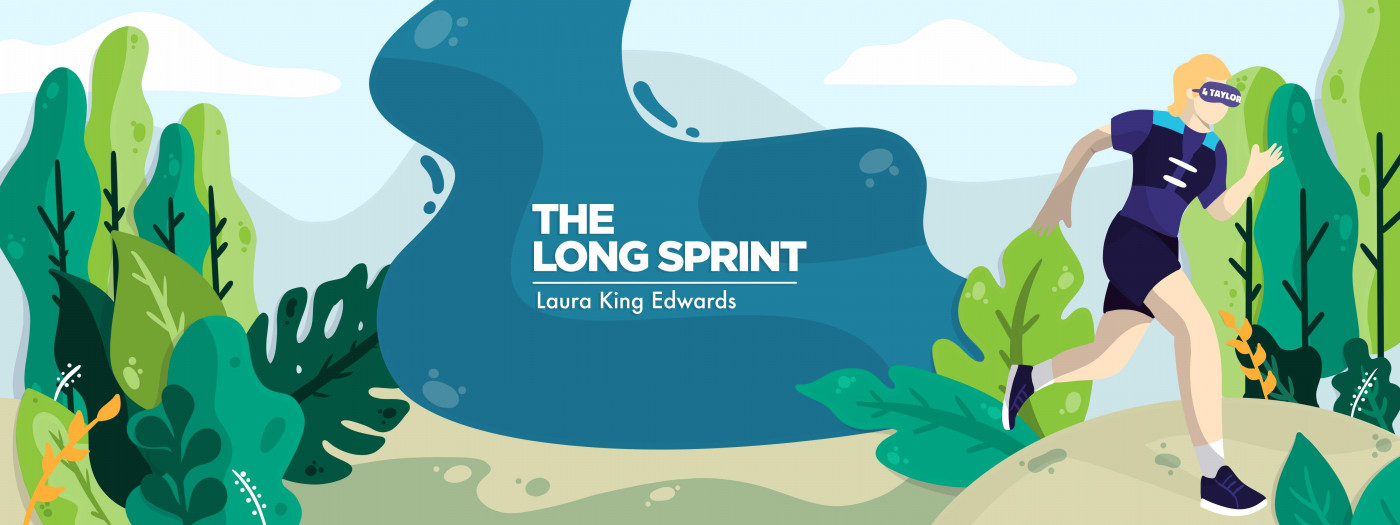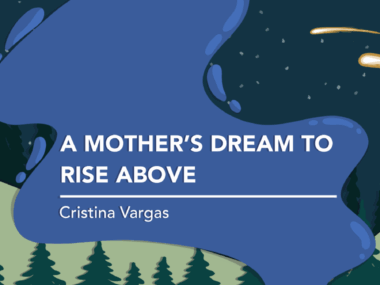Giving Thanks, Despite Batten Disease
Written by |

Thanksgiving began as a simple gathering hundreds of years before the invention of football and shopping malls. For the Pilgrims, this special day was about giving thanks for the blessing of the harvest and the preceding year.
In modern America, the fourth Thursday of November brings turkey and touchdowns, Turkey Trots and tryptophan hangovers. But in a world with Batten disease and the staggering pandemic, it isn’t always easy to give thanks.
For my family, Thanksgiving changed long before the coronavirus effectively shut down holiday travel. In the last years of my sister’s life, she received all of her nutrition via a feeding tube. She didn’t devour a plate piled high with food, though she always had a place at our table.
In those later years, my sister, Taylor, also never spoke. (In fact, her last words were “I’m hungry,” hours before the operation to have her feeding tube placed.) So, while she skipped the gluttonous holiday eating, she also couldn’t participate in conversations at mealtime.
Finally, after inspiring so many people around the world — including her older sister — by running two 5K races without the gift of sight, Taylor spent her final years confined to a wheelchair. No Turkey Trots for her.
But Taylor’s spirit was always stronger than her body. Every time Batten disease stole something precious from her, my sister refused to let it break her. She held her head a little higher and gritted her teeth a little harder and smiled a little wider. Through it all, she showed me how to push for the finish line in the toughest of races and find the blessings in even the darkest days.
I said goodbye to my sister more than two years ago, but she’s still teaching me. That’s why this year, I’m choosing to focus on the gifts of 2020, in my own life and beyond.
If you or someone you know is fighting Batten disease, here are just some of the good things that have happened in an otherwise difficult year:
1. A gene therapy clinical trial for CLN1 disease is on the horizon.
This one’s personal for me, even though Taylor didn’t live to receive the treatment. That’s because Taylor’s Tale, the nonprofit organization I co-founded in her honor, spearheaded the original project under Dr. Steven Gray at the University of North Carolina.
Gray is now on the faculty at the University of Texas Southwestern, and is chief scientific officer for Taysha Gene Therapies, which acquired the CLN1 disease program from Abeona Therapeutics earlier this fall. I’m thrilled that he is working with Taysha to push this treatment to the finish line.
2. It isn’t the only treatment in the pipeline for people with Batten disease.
Taylor was diagnosed in 2006, quite literally in the dark ages of Batten disease research. No wonder doctors told my parents there were no options for their precocious, plucky younger daughter. But the landscape has changed.
Brineura (cerliponase alfa), BioMarin‘s enzyme replacement therapy, is on the market and has shown to slow the loss of abilities in children with CLN2 disease. Meanwhile, Amicus Therapeutics has active preclinical programs for CLN3 disease and CLN1 disease.
3. The COVID-19 pandemic has proven the possibilities of good science and hard work.
Just this month, Pfizer announced its vaccine candidate was found to be more than 90% effective in preventing COVID-19 in trial participants without evidence of prior infection. Now, just think about that for a second: Here in November, we may have a working vaccine for a virus that didn’t even exist in humans less than a year earlier.
Granted, private and public sources have poured countless and unimaginable resources into fighting the coronavirus pandemic. But it’s still a nice validation of our ability as humans to find solutions to even the steepest challenges.
Now, just imagine what we could do with even a fraction of that attention and monetary funds for the fight against rare but devastating disorders like Batten disease.
We may have lost my sister, but we haven’t lost the war. We’ll endure more dark days, yet we’re making progress toward that light at the end of the tunnel. And however you celebrate the season, I hope you’re able to focus on all of life’s fortunes this Thanksgiving.
Because I do feel so very fortunate, in spite of Batten disease.
***
Note: Batten Disease News is strictly a news and information website about the disease. It does not provide medical advice, diagnosis, or treatment. This content is not intended to be a substitute for professional medical advice, diagnosis, or treatment. Always seek the advice of your physician or other qualified health provider with any questions you may have regarding a medical condition. Never disregard professional medical advice or delay in seeking it because of something you have read on this website. The opinions expressed in this column are not those of Batten Disease News or its parent company, Bionews, and are intended to spark discussion about issues pertaining to Batten disease.





Leave a comment
Fill in the required fields to post. Your email address will not be published.